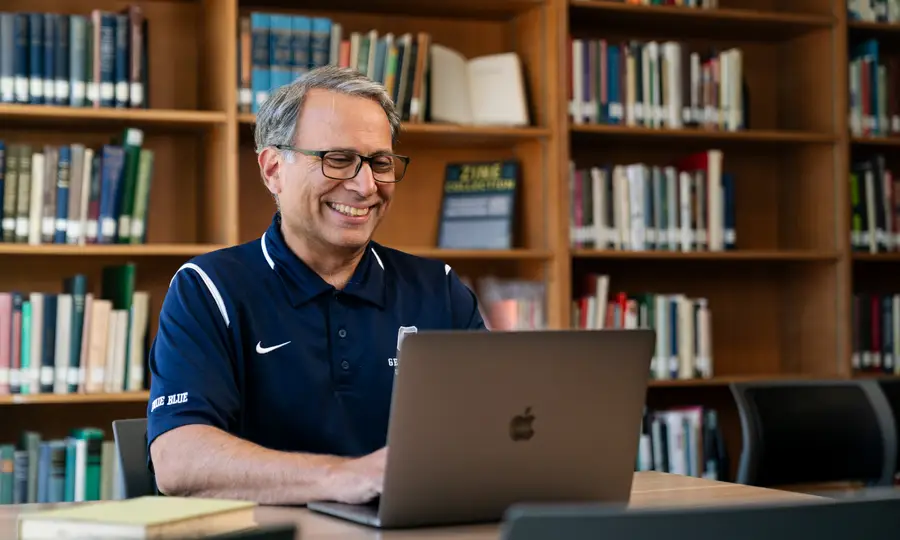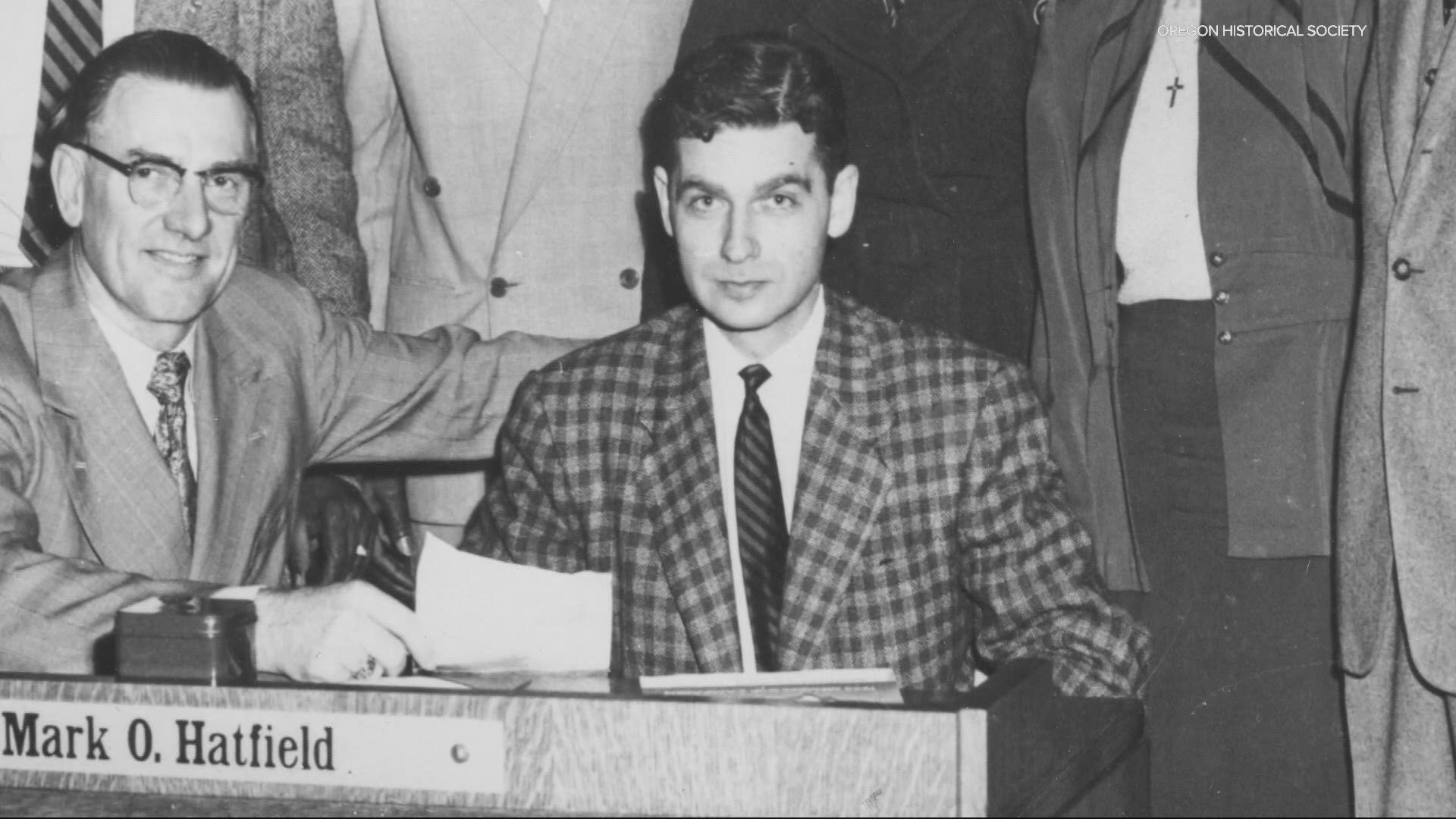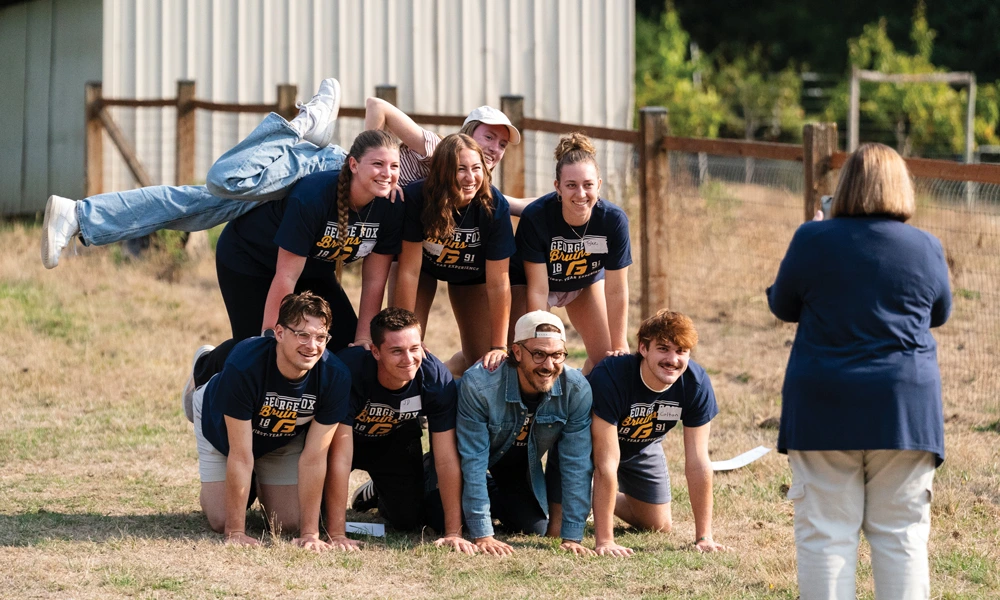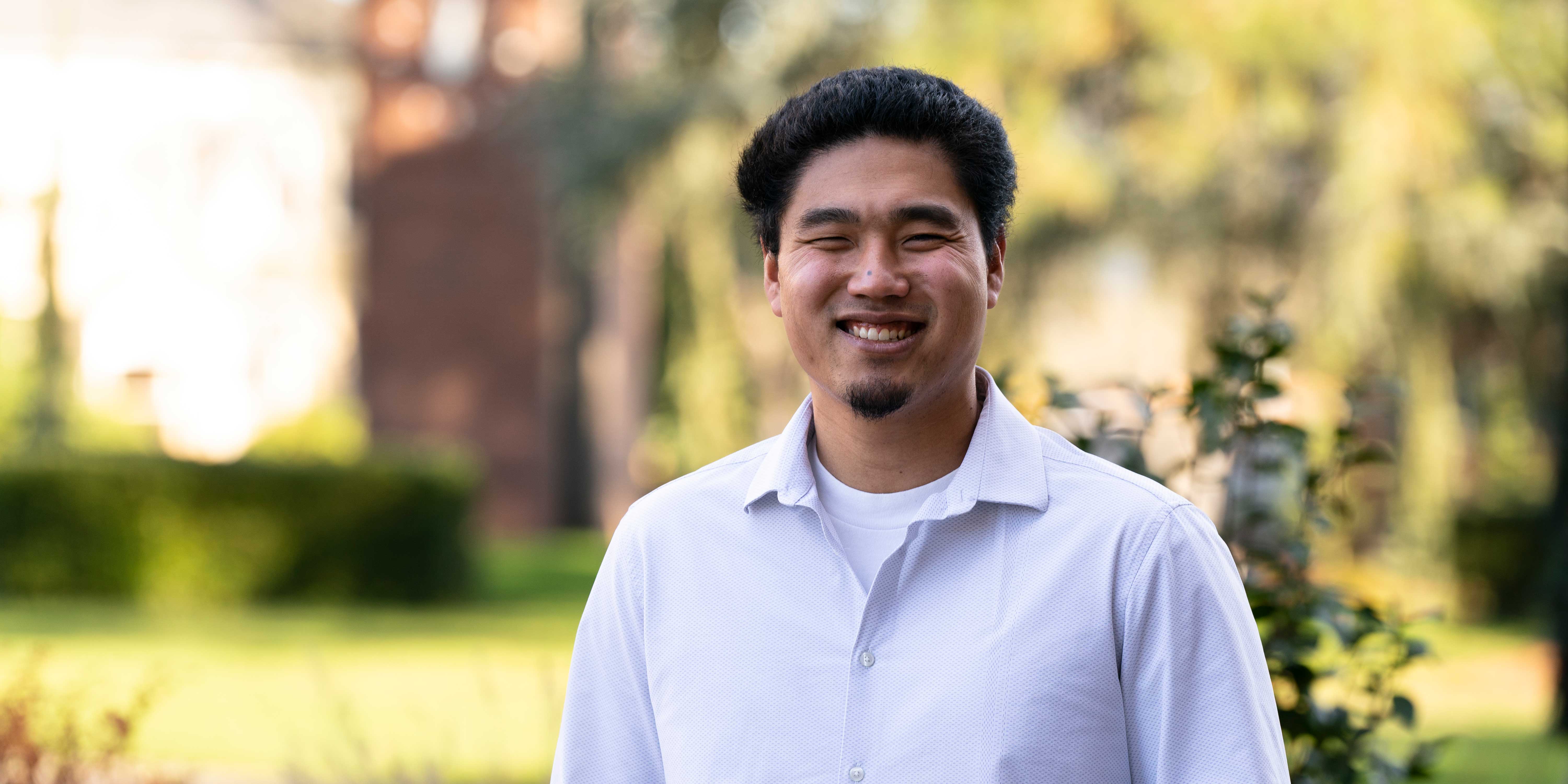
Pondering the Implications of AI in Higher Education
by Jane Gonzales
How should we think about the use of AI in the learning process? What are the benefits, the pitfalls, and the moral implications? In this piece, one student decided to ask these questions of herself and others in the George Fox community
In recent years, artificial intelligence has gone from an intriguing thought experiment to an everyday reality. For some, AI is a wide open door, brimming with possibilities. For others, it’s a looming threat. For many, it’s a temptation.
The Transformation of Education
As a student at George Fox, it’s clear to me that AI has already transformed the landscape of education. Glancing around the library, I often notice ChatGPT pulled up on various laptop screens, and it's frequently discussed in my classes. It impacts how I think about writing, even when I don’t use it: I wonder if I sound too machine-like and whether writing a strong paper will arouse my professors’ suspicion. Do I leave in a mistake or two? Or is that what the students who did use AI are thinking?
I end up caught in a “battle of wits” (à la The Princess Bride), when all I really want is to write a good paper and maintain my relationship with my professor. This post-AI world is certainly strange, when terms like “prompt engineering” and “AI literacy” are thrown around as if they’ve always been part of our vocabulary. Even my mom jokingly refers to ChatGPT as her best friend.
I must admit, I am not a fan of AI. To me, all it really does is save us effort, and I think effort is good for us (as in the “Grit” in “Faith. Grit. Joy.”). If all the AI tools were shut down tomorrow, I’d be thrilled. But something tells me that’s not going to happen. AI is here to stay, and I have to learn to live with it.

An Optimistic Outlook
Since I know so little about AI, I decided to talk to others in our George Fox community to understand how they are interpreting this massive change. I began by sitting down for a conversation with senior computer science major Ethan Royer. In addition to relevant coursework, Ethan has also completed the honors program, which gives him a multidimensional perspective as someone who appreciates literature and philosophy, but is deeply immersed in the world of technology.
As we talked, I couldn't help but notice how calm Ethan appeared. There was no trace of the anxiety that often accompanies major change and an uncertain future. While I was feeling grim that a generation who delegated their learning to a computer might soon be occupying important positions, Ethan expressed confidence that the students who maintained their integrity and actually learned in school would ultimately rise to the top.
He cited an assignment from one of his upper-level courses as an example, which AI could not process. Students who had learned the material up to that point would be comfortable with the project, but those who had avoided learning by copying and pasting assignments into ChatGPT were doomed to fail. Ethan suggested that job interviews are another place where individuals will have to demonstrate what they know, not just what they can produce.
A Marathon as a Metaphor
I also spoke with Rick Muthiah, our director of learning support services, who has been proactive in thinking through how our university can incorporate AI in the right way. To my surprise, he expressed mixed feelings about AI and even conceded that it may be doing more harm to students than good. This was comforting; I didn’t feel like there was a major value disparity causing us to come to different conclusions about AI. However, Rick felt confident that AI will do more harm if they ban AI and let students mess around with it ourselves than if they explore its uses alongside the students and show them how to use it in a way that is less detrimental to our education.
He also pointed out that there are ways to use AI where it doesn’t do any work for you – like if you have it ask you questions about your own paper to get you thinking through your ideas. I’m still not sure it’s worth the temptation, but it was a good point nonetheless.
Rick presented an apt metaphor about AI and education: If you’re training for a marathon by running a certain distance every day, but instead of running, you drive to the destination, you won’t be in shape for the race. Running isn’t just about reaching some destination – it’s about your personal health. It’s the same with education. It isn’t just about getting a job or meeting a career goal, it’s about developing your faculties and your character.

George Fox Director of Learning Support Services Rick Muthiah
‘Nothing New Under the Sun’
Another person with some perspective to share was Ethan Lex, a fellow English major. During a class discussion about AI, which I took as an opportunity to get on a soapbox about everything from economics to environmentalism, Ethan pushed back, showing enthusiasm for the possibilities of what AI could help him create and challenging our assumptions that something is bad just because it is different.
“The differences between AI and other tools – though seemingly dystopian – are negligible when it comes to human error,” he says. “Just as humans are able to abuse language, printing presses, and airplanes, so are they able to abuse AI. There is, in the words of Qoheleth, ‘nothing new under the sun’ (Ecclesiastes). We do not face a new, automatic enemy of the modern era. Instead, we simply face another manifestation of the same ancient enemy which was already defeated on the cross.”
I took him to mean that if we are aimed at using this tool in a God-honoring way, we will. But if we aim to use AI in ways that are just as errant when applied to other technologies (like using it deceitfully), of course there are negative consequences.
I think Ethan is right, and I appreciate his bringing human responsibility to the forefront. But this means we should be asking, “Is the way we are using AI in the context of education God-honoring?” I leave readers with that question, because if I were to try and answer it for you, I would have to define and support what I believe the purpose of education, and work in general, are in terms of a Christian worldview, and this would become a very long blog post (someone should write a thesis paper about that … Oh, wait, I am!).
But maybe it’s important for you to answer that question for yourself. If you haven’t given AI consideration, I would. It’s a big deal. I hope the few thoughts I’ve shared will prompt you to think about it more deeply.






